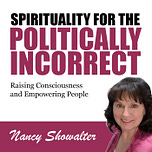Hello and welcome to today’s episode where we skip the fluff, challenge the narratives, and dive deep into the soul work that actually transforms your life.
Today we’re going to talk about something you won’t find on most meditation apps or spiritual influencer reels—emotional buttons. I think you know what I’m talking about… those triggers that, when pushed, bypass your logic and throw you into an instant emotional reaction.
Someone cuts you off in traffic. Your partner interrupts you mid-sentence. You walk into a cluttered room after a long day—and boom. You're suddenly angry, annoyed, or just shut down. It happens fast, almost like a reflex. But here’s the spiritual truth: No one is pushing your buttons. You’re reacting to your own unhealed stuff.
So, let’s talk about how to disconnect these buttons—not repress your emotions, but actually understand, rewire, and ultimately reclaim your power.
Know Thy Triggers (Because They Know You)
We all have emotional buttons—but they’re not universal. Yours may be triggered by a late text message, while someone else couldn’t care less. That’s the first clue: These reactions are personal. They're built from your own experiences and internal beliefs.
The first step is simple but not easy: Observe yourself.
Start paying attention. When you get angry, anxious, or offended, hit the pause button. Ask yourself:
What just happened?
Who was involved?
What was said?
What emotion came up?
And—here’s the kicker—does this feel familiar? Because chances are, it’s not the first time this button’s been pushed.
You’re not crazy or broken for reacting. But you are responsible if you want to change.
Getting Real with Yourself (And Maybe a Few Trusted Friends)
Self-awareness isn’t always a solo project. Sometimes we need mirrors—people we trust to tell us the truth.
Ask a few close friends or family members: “What do you think sets me off emotionally?” You might be shocked. What you think is a “normal reaction” might look like an overreaction to others.
But don’t take it personally—use it. It’s feedback and that’s valuable.
Then, take what you’ve learned and make a list. Write out your emotional triggers. Don’t judge them, just name them. You can’t heal what you won’t face. This alone can be a revealing exercise.
The Hidden Cost of Being Triggered
The truth is, your emotional buttons are hurting you.
They’re not just an inconvenience. They’re blocking your peace, your growth, your success, and even your spiritual evolution. Think about it:
Are your buttons damaging your relationships?
Making you look unprofessional?
Sabotaging your confidence?
Every time you react instead of respond, you give away your power. Reacting and responding may seem similar, but they come from very different places within you.
Reacting is often immediate, emotional, and unconscious—it's a knee-jerk impulse driven by old wounds, habits, or ego defenses. It usually happens without thought and often leads to regret or escalation.
Responding, on the other hand, is intentional. It’s a conscious choice made after pausing, observing, and considering the situation. Responding comes from awareness rather than reactivity—from the higher self rather than the wounded self. In essence, reacting is being controlled by the moment; responding is taking control of the moment.
Uncover the Origin Story
Now here’s where it gets deeper: Where did these buttons come from?
Childhood? A past betrayal? A controlling parent? A traumatic event?
Dig into the why. For example, if being ignored sends you into a rage, ask yourself: When in my past did I feel invisible? That question alone can lead to profound healing.
This is shadow work. And it’s sacred.
Rewrite the Script
Now that you have identified your triggers, it’s time to ask:
What would a healthy, empowered response look like?
Not the spiritual bypass version. Not the fake smile. But the real you—responding with awareness, not reaction.
Play out scenarios in your mind. “Next time I feel disrespected, I’m gonna pause, breathe, and speak my truth calmly.”
It is possible to interrupt your emotional reactions. Mentally speak to yourself by name, “Nancy, stop, I’m handling this.” Then take a step back, evaluate and respond. And remember, silence is a response if that is what is the best response is in a particular situation.
It won’t be perfect at first. But every time you pause instead of explode, you weaken the old wiring.
Practice, Fail, Repeat
Spiritual mastery doesn’t mean you never get triggered. It means you notice it faster and recover quicker.
You’re building new emotional reflexes and that takes time.
Be patient with yourself. Your nervous system has to rewire. Your soul is learning to lead. And every time you choose consciousness over chaos, you gain ground.
This isn’t self-help stuff. This is warrior-level soul work.
Learning your emotional buttons—and choosing not to be ruled by them—isn’t just good psychology. It’s good spirituality. It’s what Christ meant when he said, “Be in the world, but not of it.” It’s what every true spiritual master teaches: Know thyself. Master thyself. Be thyself.
So, the next time someone presses your buttons, remember—they’re not the enemy. They’re just showing you where you're still enslaved.
Take the opportunity to grow.
Thanks for tuning in today. If this episode hit home for you, share it with someone who needs to hear it. And as always—stay positive, grateful and true to your soul.












Share this post